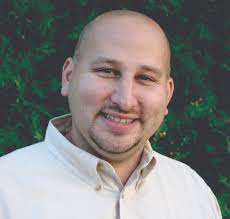
By experiencing directly and frequently what our professional’s work produces and it how it impacts others, they will be more motivated to perform the work well, feeling valued and blessed.

How We Help Them See the Fruits of their Labor:
Following our schematic:
- Make clear what the professional’s work is helping to produce
- Provide opportunities to see the work results in action
- This will lead to increased joy, satisfaction, and purpose in one’s work.
- It will also empower professionals to “pay their work forward” as noted in this schematic:

Plan of Action:
- State providing opportunities for staff to see what they produce
- Help them in doing BETTER work, not MORE work
- Saying thank you, authentically, specifically, and frequently
- Invite staff to pay-it-forward

Our Portrait: Jon Shapiro

“I saw at a deeper level the kind of work that I was doing, seeing the direct line from my work planning programs, recruiting new families, supporting operations with the director, leading meals, and managing staff translating in front of his eyes every summer to smiley faces, campers learning new skills and gaining confidence, and being instilled with a positive, interesting, and engaging Jewish experience and identity – from Shabbat, to Israel, to the Jewish values we permeated throughout the camp each day.” – Jon Shapiro
Jon Shapiro, a long time JCC, camp, and not-for-profit professional who at the time of our initial interview held the position of Vice President for Programming and Operations at the JCC of Indianapolis, talked in detail with me about this notion of “seeing the fruits of our labor” to feel more motivated and feeling more valued at work. It seems a simple idea, yet it is one we could be more intentional about with everyone on our payroll. This blessing will in part lay out with whom we can have more kavanah (intention).
Jon grew up involved in his synagogue youth group and in Hebrew high school during his teenage years and started going to Jewish overnight camp at the age of 12. He became hooked on all that Jewish camp could offer — friends, accessible connection to Jewish ritual, and opportunities to assume roles of leadership — so much so that he returned to staff Jewish camp, at the Union for Reform Judaism’s Camp Eisner in the Berkshires. At Eisner, Jon had a specific identity and felt beloved by the campers and staff. Jon went back to camp simply because it is “what Jon knew.” Yet examining his motivations reveals a mix of much of what we have already presented in this book and what we are introducing in this blessing.
Questions for Reflection
- Is there a motivator for you to pay it forward in your work? Can you track the experiences that may have inspired you and how you are honoring them by the work you are doing now? How can we make this link apparent to our professionals, nurture it and strengthen it?
- What do we ask of our staff? Do we ask them to produce more in order to demonstrate their worth/effectiveness, or might we re-focus our expectations, so they do better – higher quality work – even if that means they produce fewer deliverables?
- How might we prioritize –the “authentic thank you” as a result of specific tasks, and encouraging our non-direct-service staff especially to walk around the building (literally or metaphorically) so they can be reminded of the importance of their work?
